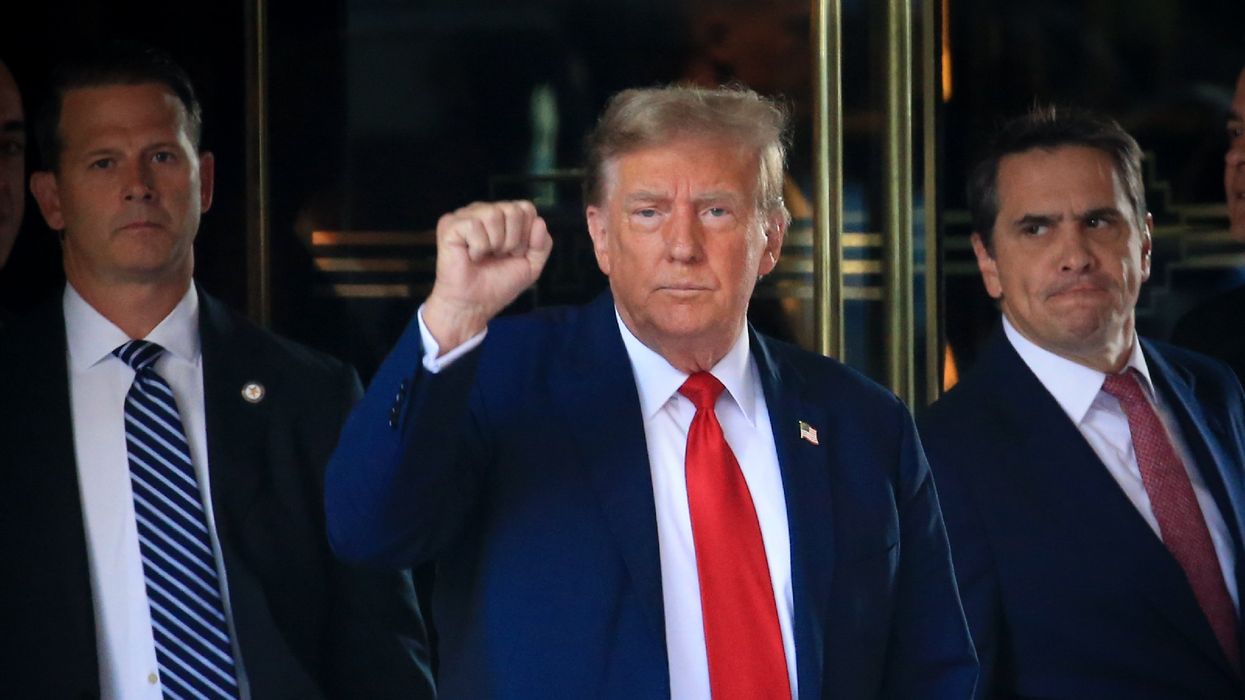Nevins is co-publisher of The Fulcrum and co-founder and board chairman of the Bridge Alliance Education Fund.
On Jan. 23, 2016, Donald Trump was campaigning in Iowa when he made a remarkable announcement: "I could stand in the middle of Fifth Avenue and shoot somebody, and I wouldn't lose any voters, OK?"
Unfortunately, with less than two weeks to go until the 2024 election, it appears that despite the absurdity of that statement Trump might have been right.
He’s a convicted felon. He’s been impeached twice. There are a multitude of other criminal charges still outstanding. Yet polls indicate he is running neck-and-neck with Kamala Harris.
An ABC-Ipsos poll conducted in April — after he was found guilty in a hush money case in New York — indicated only 4 percent of Trump supporters said they would not vote for him and 16 percent said they would reconsider it.
Despite all that and The New York Times recently reporting that “the 78-year-old former president’s speeches have grown darker, harsher, longer, angrier, less focused, more profane and increasingly fixated on the past,” Trump’s supporters are standing by him.
And leading Republicans are ignoring his behavior.
On Sunday, CNN’s Jake Tapper had Speaker Mike Johnson (R-La.) on his program. Tapper noted that Trump has referred to Democrats as “the enemy from within” and threatened to use the military against fellow Americans. He then played a clip in which Trump said:
“The bigger problem are the people from within. We have some very bad people. We have some sick people, radical left lunatics. And I think they're the big — and it should be very easily handled by — if necessary, by the National Guard or if really necessary by the military, because they can't let that happen.”
Johnson responded by saying, “Jake, you know that's not what he's talking about there. What he's talking about is marauding gangs of dangerous, violent people.”
But Tapper pushed back, quoting Trump again and saying the former president was specifically talking about former Speaker Nancy Pelosi (D-Calif.) and Rep. Adam Schiff (D-Calif.).
As I listen to the excuses and denials by the speaker of the House and so many other members of Congress, I can’t help but wonder if there is anything that Trump could say or do that would change the minds of his supporters.
And that is what is so frustrating for Americans who believe in the ageless human, religious and philosophical values of truth, trust, reason and civility, and believe in the dignity of people across all cultural, economic, political, racial and gender demographics. It just doesn’t seem to matter.
Maggie Haberman of The New York Times summed it up well: “Trump is a really difficult figure to cover because he challenges news media processes every day, has for years. The systems ... were not built to deal with somebody who says things that are not true as often as he does or speaks as incoherently as he often does. I think the media has actually done a good job showing people who he is, what he says, what he does.”
The sentiment was echoed by Tom Rosenstiel, a journalism professor at the University of Maryland. “The people who don’t like or are infuriated by him cannot believe his success and would like the press to somehow persuade the people who do like him that they are wrong,” he said. “And the press can’t do that.”
Many Americans have already voted, either by mail or at early in-person locations. Those who have not yet cast a ballot need journalists to provide an accurate portrayal of Donald Trump, holding him to account for his words, just like Tapper did on Sunday.
Yet will any of that make any difference? Or was Trump correct back in January 2016?




















Trump & Hegseth gave Mark Kelly a huge 2028 gift